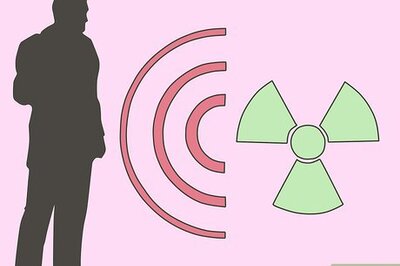WHO Is Discussing When to Call an End to Pandemic: What Will World Look Like, How Will It Impact Us?

views
The World Health Organization’s public health experts have begun debating how and when to call an end to the global Covid-19 crisis, exploring what would be a significant milestone more than two years after the virus’s emergence.
The WHO stated that such a declaration is not currently being considered. While cases have decreased in many areas, fatalities have increased in Hong Kong, and China reported more than 1,000 new daily cases this week for the first time in two years.
Instead, discussions at the Geneva-based agency are centred on what conditions would eventually signal the end of the public health emergency declared on January 30, 2020. Such a declaration would be more than just a symbolic gesture; it would provide additional impetus to the campaign, a report by Bloomberg said.
“The International Health Regulations Emergency Committee on Covid-19 is looking at the criteria needed to declare the public health emergency of international concern as terminated. As of now, we are not there yet,” the agency said in an e-mail, according to the report.
Amid ‘Normalisation’, Fears of an Outbreak Not Unfounded
Many countries have already taken steps to return to more normal social behaviours, such as relaxing masking and quarantine regulations and opening borders to travel. Despite this, many Asian countries are reporting record levels of transmission, and cases in Germany have recently rebounded to near-record levels. According to the WHO, there have been over 10 million Covid cases and 52,000 deaths in the last week.
Researchers have also warned that even if Covid-19 cases decline, the disease is still likely to kill thousands of people each year, similar to other endemic illnesses such as malaria and tuberculosis. And the emergence of new, dangerous variants is unforeseeable.
WHO’s Talks To Impact Drug Firms Amid Covid
The WHO’s discussions could have ramifications for drug companies like Pfizer Inc. and Merck & Co., which have agreed to allow generic competition for their Covid treatments until the pandemic is over. Vaccine makers, including AstraZeneca Plc, have stated that they will keep their product prices low until the pandemic is over, without specifying what the benchmark would be.
WHO Hesitance Has a Reason
In the past, the WHO has been hesitant to declare an end to global health emergencies and disease outbreaks. The decision, like the declaration of an emergency, would be made by Director-General Tedros Adhanom Ghebreyesus after consultation with experts.
According to David Heymann, a former WHO and Centers for Disease Control and Prevention epidemiologist who advises the WHO on outbreaks, many countries no longer rely solely on WHO guidance, the report has said.
…But the Pandemic Could ‘Never End’
The WHO’s head of emergencies said last month that the worst of the coronavirus pandemic – deaths, hospitalizations, and lockdowns – could be over this year if huge disparities in vaccinations and medicines are addressed quickly.
Michael Ryan stated during a World Economic Forum panel discussion on vaccine equity that “we may never end the virus” because such pandemic viruses “end up becoming part of the ecosystem.”
“We have a chance this year to end the public health emergency if we do the things we’ve been talking about,” he said, according to PTI. COVID-19, according to experts, is unlikely to be eradicated and will continue to kill people, albeit at much lower levels, even after it becomes endemic.
Read all the Latest News India and Breaking News here



















Comments
0 comment